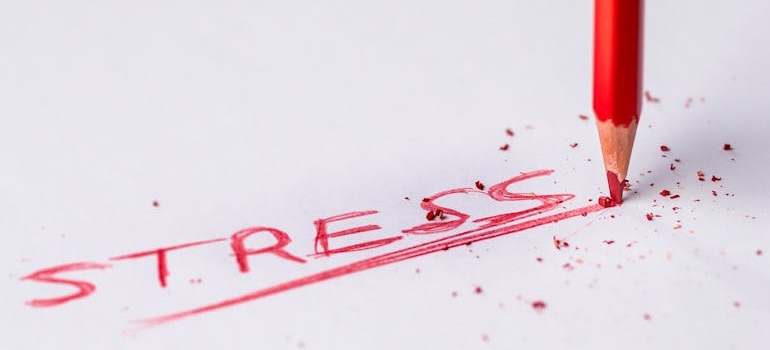Recovery is a journey that often feels like a marathon, not a sprint. Staying motivated can be tough, especially when obstacles appear unexpectedly. If you’re currently in a West Virginia treatment center, maintaining motivation throughout your recovery process is crucial. This guide offers practical advice to keep you focused and driven. From identifying your personal goals to leveraging your support network, we’ll explore effective ways to sustain your enthusiasm. Every step forward is progress, and you’re not alone on this path. Let’s look at some strategies that can help you maintain your momentum and achieve long-term success in your recovery journey.
The Importance of a Positive Mindset
A positive mindset isn’t just helpful; it’s crucial when you’re focused on maintaining motivation throughout your recovery process. It shapes how you view challenges and setbacks, transforming them into opportunities for growth. Incorporating cognitive behavioral therapy for substance use disorders into your recovery can reinforce this outlook.

This type of therapy helps you address negative thoughts and replace them with positive, constructive ones. It’s about learning to recognize how your thoughts influence your feelings and behaviors and then using that knowledge to foster a healthier, more optimistic mindset. Embracing positivity isn’t about ignoring difficulties—it’s about facing them with the belief that you can overcome them. This approach doesn’t just aid recovery; it empowers you to build a fulfilling, sober life.
How Motivation Drives Recovery Success
Motivation is the engine that powers your journey through recovery. It’s what gets you up in the morning and keeps you going even on the tough days. When you’re motivated, you’re more likely to attend your therapy sessions, follow through with your commitments, and stay on track with your goals. It fuels your desire to change and grow, pushing you to overcome obstacles that once seemed insurmountable.
Think of motivation as your inner cheerleader, cheering you on, celebrating your victories, and encouraging you to get back up when you stumble. Keeping your motivation high requires nurturing. Surround yourself with supportive people, set realistic goals, and remind yourself often why you started this journey. With sustained motivation, you’re setting yourself up for a successful recovery filled with personal achievements and growth.
Identifying Personal Goals
We’ll dive into why setting personal goals, both short-term and long-term, is crucial for your progress. By defining clear objectives, you create a roadmap that guides your actions and decisions. This clarity not only motivates you but also provides a sense of accomplishment as you tick off each goal. Let’s see how these goals can be the stepping stones to your success, helping you stay focused and driven.

Setting Achievable Short-Term Goals
Writing down achievable short-term goals can significantly bolster your journey in a long term drug rehab WV. Each small victory not only brings you closer to recovery but also boosts your confidence in maintaining motivation throughout your recovery process. These goals are not just tasks; they’re milestones in your healing journey. These goals serve as stepping stones, keeping you focused and motivated. Let’s look at how to craft goals that are both practical and encouraging:
- Attend all therapy sessions this week.
- Journal daily.
- Practice mindfulness for 5 minutes a day.
- Reach out to a support group member once a week.
Long-Term Vision: Staying Committed to Your Journey
Maintaining a long-term vision is essential in substance abuse treatment in WV. It’s about looking beyond immediate challenges and staying committed to your recovery journey. Keeping these goals in mind helps you stay grounded in your recovery efforts. Each goal supports maintaining motivation throughout your recovery process, reminding you of the bigger picture and your ability to change your life. Here are some goals to help anchor your long-term vision:
- Achieve one year of sobriety.
- Complete your treatment program.
- Build healthy relationships.
- Pursue a new hobby or skill.
Building a Support System
Having the right people around you isn’t just comforting; it’s a game-changer in your journey. They uplift, encourage, and push you forward, especially when times get tough. Let’s explore how building this network can be your backbone, keeping you driven and focused on your goals.
The Value of Trusted Friends and Family
Having trusted friends and family by your side can be a game changer, especially when you’re committed to maintaining motivation throughout your recovery process. These are the people who know you best and care about you deeply. They can provide a listening ear, a shoulder to lean on, and the encouragement needed to keep moving forward.
Engaging in family therapy for addiction can also strengthen these relationships, helping everyone understand the dynamics of addiction and recovery. It’s about creating a supportive environment where you can openly share your struggles and successes. It’s okay to lean on others during tough times. Their support can remind you of your worth and your ability to overcome challenges. Let them walk with you; it might make all the difference.

Seeking Professional Guidance and Peer Support Groups
Recovery can feel like a solitary journey, but you don’t have to go it alone. Seeking professional guidance and joining peer support groups can make a significant difference. In residential treatment facilities in WV, you’ll find experts who understand what you’re going through. They can offer personalized advice and strategies tailored to your needs.
Connecting with others in support groups also means sharing experiences and learning from those on similar paths. It’s comforting to know you’re not alone, and it’s empowering to see others overcoming their challenges. Whether you’re just starting out or finding your footing again, remember reaching out for help is a strength, not a weakness. This support can be your anchor, keeping you grounded and focused as you move forward.
Addressing Emotional Setbacks
Recovery is not a straight path and emotional setbacks are a natural part of the journey. If you find yourself struggling, remember that maintaining motivation throughout your recovery process is key, and individual therapy for addiction can be a powerful ally. This tailored support helps you navigate rough patches by providing tools to understand and manage your emotions effectively.
It’s crucial to acknowledge your feelings rather than ignore them, allowing yourself to learn from each experience. With professional guidance, you can develop resilience and find healthier ways to cope. Each setback is a chance to strengthen your commitment to recovery. You’re not alone in this, and with the right support, you can continue to make progress towards a healthier future.
Handling External Stressors Without Losing Focus
Facing external stressors without losing focus can be challenging, especially if you’re part of a partial hospitalization program West Virginia offers. Life doesn’t pause while you’re on your recovery journey. Whether it’s work pressure, family issues, or daily responsibilities, these stressors can feel overwhelming. The key is not to block these stresses but to manage them without derailing your progress.
Start by recognizing what you can and cannot control. Use stress-reduction techniques that work for you, like deep breathing, regular physical activity, or talking things out with a friend or counselor. Staying focused on your recovery doesn’t mean ignoring the rest of your life. It means integrating your recovery efforts into your daily life so that you can handle life’s pressures without compromising your progress.

Journaling Your Achievements and Struggles
Journaling can be a powerful tool in your recovery journey, helping you track both your achievements and struggles. It’s a personal space where you can express yourself without fear of judgment. Here are some tips to make the most out of journaling:
- Be consistent: Try to write regularly, even if it’s just a few lines a day.
- Celebrate small wins: Documenting even the smallest successes can boost your morale.
- Reflect on challenges: Write about the obstacles you face and how you feel about them. This can provide insights into patterns that may need addressing.
- Set goals: Use your journal to set recovery goals and track your progress towards them.
- Be honest: The more truthful you are with your journal, the more helpful it will be.
Leveraging Apps and Digital Resources for Recovery
In today’s digital age, leveraging apps and digital resources can significantly boost your efforts in maintaining motivation throughout your recovery process. These tools offer support right at your fingertips, making it easier to stay on track with your goals and connect with resources anytime you need them. Here are some effective apps you might consider:
- Sober Grid: A peer support network that provides encouragement and accountability from others who are also in recovery.
- Headspace: Offers guided meditations to reduce stress and improve mindfulness.
- I Am Sober: Helps track your sobriety milestones and daily habits.
- Talkspace: Connects you with licensed therapists for online counseling.
Using these apps can complement your traditional recovery methods, providing extra support that’s accessible and user-friendly. They can be a lifeline on days when you need immediate help or just a reminder of how far you’ve come.
The Connection Between Physical Activity and Motivation
Physical activity is a powerful booster of motivation, especially when you feel stuck or low. When you move your body, whether it’s a brisk walk, a run, or a yoga session, it releases endorphins, those feel-good chemicals that naturally lift your mood and enhance your energy levels. This boost can be crucial in keeping you motivated on tougher days.

Exercise also helps clear your mind, giving you a fresh perspective and enabling you to tackle challenges with renewed vigor. Regular physical activity sets a rhythm for your day, establishing a routine that supports consistency in your recovery efforts. It reinforces your commitment to yourself, proving that you can set and meet goals, which is incredibly motivating. So, lace up your sneakers and move your way to a more motivated you.
Mindfulness Practices: Staying Grounded in the Present
Mindfulness practices are essential tools for anyone looking to stay grounded in the present, especially during recovery. These techniques help reduce stress, enhance emotional regulation, and improve overall mental clarity. By focusing on the here and now, you can better manage the challenges of recovery without feeling overwhelmed by the past or anxious about the future. Here are some effective mindfulness practices to incorporate into your daily routine:
- Deep breathing: Take slow, deep breaths to center your mind and reduce anxiety.
- Meditation: Dedicate a few minutes each day to sit quietly and focus on your breath or a specific mantra.
- Body scans: Progressively relax different parts of your body to release tension and notice physical sensations.
- Mindful walking: Turn a simple walk into a meditative practice by paying attention to each step and the sensations of moving.
- Gratitude journaling: End your day by writing down three things you’re grateful for to foster positivity and contentment.

Transitioning to a New Normal
Transitioning to a new normal can be both challenging and exciting. As you move forward in your journey, embracing this new phase of life means adapting to changes and finding your footing. It’s okay to feel uncertain at times. Take it one day at a time and allow yourself to grow into this new reality.
Establish routines that nurture your well-being and seek support when you need it. Each step you take builds strength and confidence. Whether it’s returning to work, rekindling relationships, or starting new hobbies, these changes are part of your progress. Celebrate the small victories—they are signs of your resilience and commitment to this new chapter in your life.
Embracing Your Journey and Celebrating Your Progress
As we wrap up, remember that maintaining motivation throughout your recovery process is about embracing the journey with its ups and downs. Stay committed to your goals, lean on your support network, and use every tool at your disposal to stay focused and driven. Each day presents a new opportunity to strengthen your resolve and take another step forward. Keep celebrating your progress, no matter how small, and know that every effort counts. This path isn’t just about overcoming challenges; it’s about building a fulfilling life that you cherish. Stay on the course, keep your spirit high, and let your motivation be the light that guides you through. Your dedication and perseverance will pave the way for a successful and sustained recovery.



